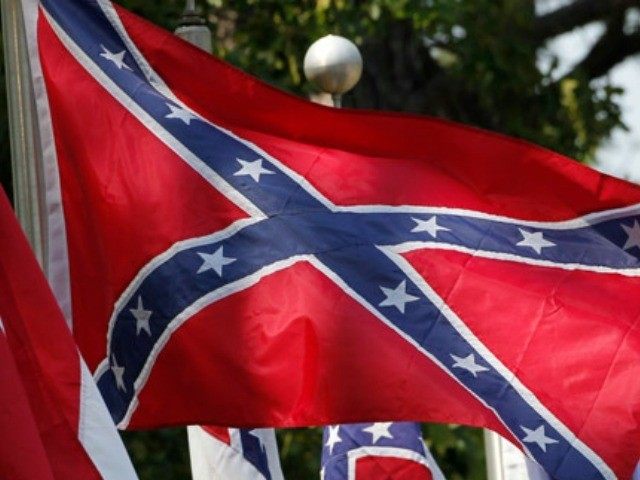The South Carolina chapter of the NAACP expresses outrage at the NCAA because the collegiate athletic governing body scheduled part of the women’s basketball tournament in the first Southern state to secede, where the capitol still flies the Confederate flag.
Although the NCAA has banned tournament games from the state since 2001, this game escaped the ban because a new rule stipulates that top-16 seeds earn the right to play at home. The home game for the Gamecocks could prove a powerful advantage; they led U.S. women’s college basketball in attendance this year, averaging 12,540 fans per game.
South Carolina’s African-American coach, Dawn Staley, a three-time Olympian selected to carry the United States flag for the opening ceremony of the 2004 Summer Olympics, was frustrated in 2013 when NCAA rules forced her team to fly 1,620 miles to Boulder, Colorado, to play South Dakota State. The Gamecocks lost in the second round to Kansas, 75-69. She told The Daily Gamecock in 2013, “I understand the history here in South Carolina. It’s not my history, but it’s somebody’s history. I think it prevents us and it prevents me from doing my job in a place that I choose to call home. If it creates an opportunity for us not to have [an NCAA tournament game at home], then yes, I’m offended.”
After the Gamecocks lost to Kansas, Gene Sapakoff wrote in The Post and Courier, “The flag flap almost certainly cost South Carolina a trip to the Sweet 16 but ill-conceived NCAA punishment of our state isn’t effective. Worse, it has backfired and should be shelved.” He added, “Biggest losers in this latest NCAA mishap: an accomplished African-American basketball coach, Staley, and her predominantly African-American program.”
Despite Staley’s 2013 concern that traveling would make it harder for her team, Lonnie Randolph, president of the state chapter of the NAACP, was angry about the NCAA decision allowing a game to be played this year in the Palmetto State. He said of the NCAA, “If they were really serious about supporting the cause of justice, there would be no loopholes,” adding that he wanted the NCAA to inform him before they announced that the game would be played in South Carolina. He opined, “I don’t agree with how they handled it. We didn’t have a chance to have a conversation with them about it.”
NCAA spokesman Cameron Schuh emailed Yahoo Sports: “With this format making it a non-predetermined NCAA championship, schools in South Carolina and Mississippi are now permitted to serve as hosts for those rounds of the championship. Under the previous format, schools in South Carolina and Mississippi were not permitted to host championship games in any round due to the NCAA confederate flag policy, which states that no predetermined NCAA championship site may take place in a state where the confederate flag has a prominent presence.”
Randolph stated, “This will not cause a major problem with the organization at this time,” but mentioned that members of his chapter voiced anger at the NCAA because “it appears they are softening their approach to injustice.” James Gallman, a native South Carolinian who serves on the NAACP national board, had a more incendiary response to the NCAA explanation, calling it “garbage … They told us there would be no event held in South Carolina that led up to championships. This is a predetermined event. They could have established other sites.”
Gallman also blamed the NAACP because it did not organize protests ahead of the decision, saying, “There were some things done too slowly on our part here in South Carolina and at the national office. It got to the point where they were going to move ahead. I had suggested there would be some demonstrations but we at the NAACP did not plan.”
Randolph concluded, ‘”This isn’t about punishing people,” but wanted to make sure he got his point across, adding, “What the confederacy stands for is against everything America stands for.”

COMMENTS
Please let us know if you're having issues with commenting.